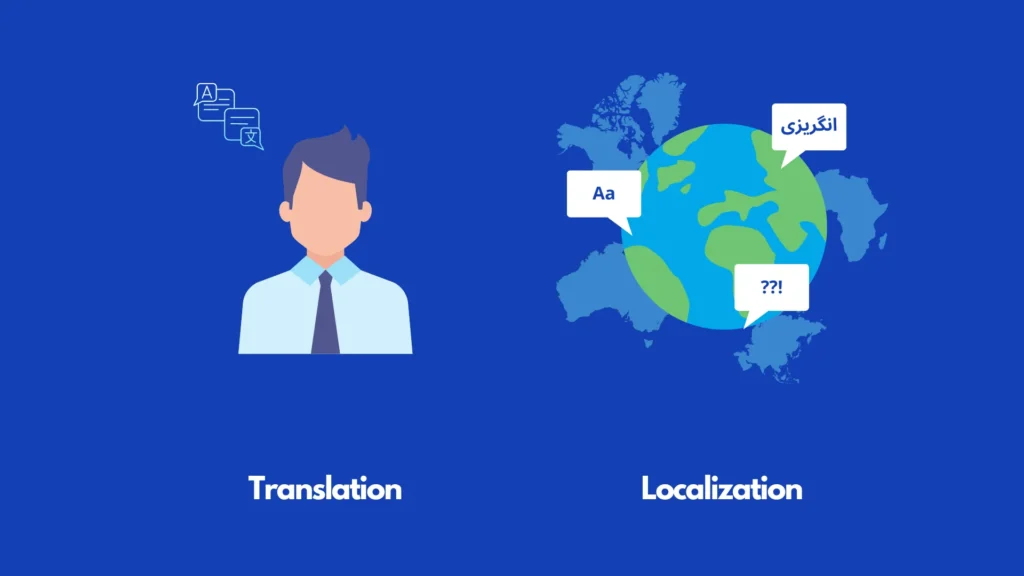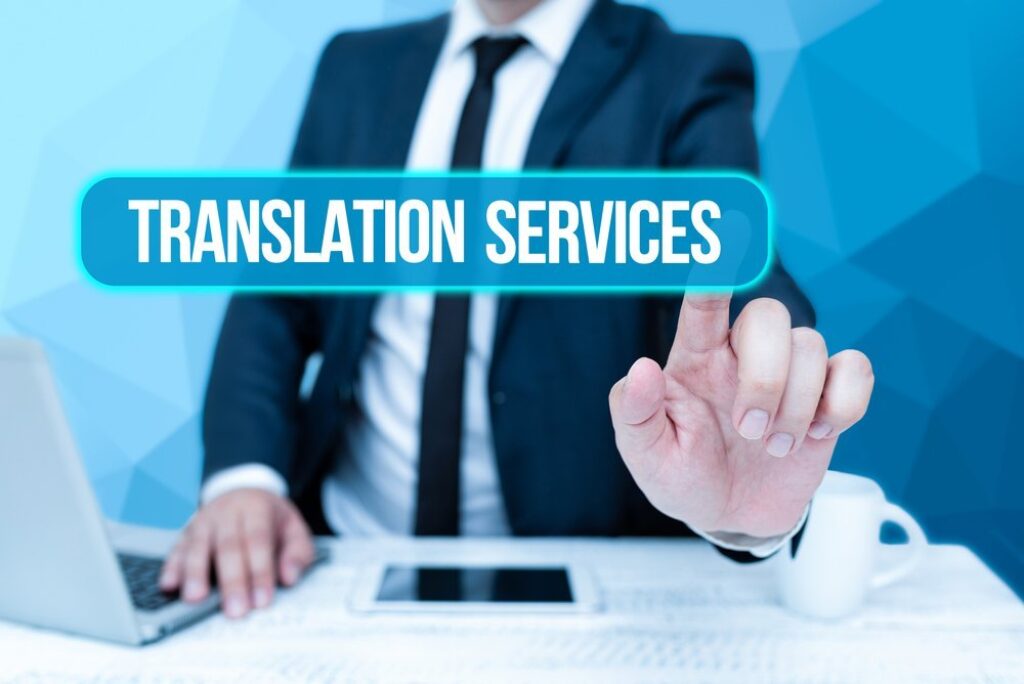
In an increasingly globalized economy, businesses are trying to take their products and services to all corners of the world while also trying to penetrate as many markets as possible. However, expanding into new cultural realms is not an easy task. Businesses face many challenges, including localization—expanding into a new region by adapting the content, products, and services to the target market’s cultural and linguistic norms.
If the need to localize is a given, how can the right partner be determined and meet the challenges and demands of localization? In today’s hypercompetitive environment, scores of localization companies offer the allure of ‘one-stop shopping’ for localization services. But with so many choices and claims to choose from, what makes for the right questions and the correct answers?
Table of Contents
Distinguishing Translation from Localization

Source: transcendtranslation.com
Before discussing the questions, it is essential to understand the difference between translation and localization. Translation is converting text from one language to another, while localization is a total process adapted to the regional culture and preference, including content, imagery, and concepts.
For example, while Spanish is spoken in many countries around the world, the colloquialisms and idioms used in Spain may differ from those used in Mexico or Latin America. Localization ensures your materials are geared toward your target audience, using language that speaks to the locals. It does not just mean translating it word-for-word; it means making sure it’s culturally sensitive and relevant to your region.
The Significance of Asking the Right Questions
Not taking the time to do your homework before embarking on a localization project could set you up for costly pitfalls and delays. Say you’ve invested significant time and money into localizing your project, only to find out just a few weeks or months later that your localization partner is either less capable or a ‘farmer’ than you’d originally thought. Bringing in a new partner halfway through the project will likely introduce cost overruns and project delays and possibly require you to do some work that’s already been completed retroactively.
These situations should be avoided by asking the right questions and finding a localization company that shares your goals, understands your industry, and has the experience to provide quality results.
1. Do You Offer Comprehensive Localization Services?

Source: lisanindia.com
The translation is just one part of localization, and you should enquire whether your prospective partner offers complete localization services. Will they translate text and adapt multimedia such as images, video, and audio files to make them culturally relevant and locally appealing?
2. What Industries and Project Types Do You Specialize In?
Localization companies typically specialize in certain areas and work with various industries and project types. Ask them about their experience with previous projects similar to yours, whether it be localizing websites, e-learning materials, software applications, or marketing collateral. A partner specializing in your domain will simplify your localization workflow and tailor the process to your specific needs.
3. How Do You Ensure Cultural Appropriateness?
Culture is a decisive factor that can derail a localization, so understanding how your prospective partner plans to handle it is essential. Find out what steps they take to ensure cultural appropriateness, and ask whether they use native linguists or cultural consultants in various fields and have subject-matter experts available for technical content. Ask them to describe their processes for identifying cultural sensitivities or taboos that could hinder the success of your localized materials.
4. What Translation Technologies Do You Employ?

Source: web-translations.com
These days, technology is a critical enabler, and many translation companies use advanced translation technology tools to enhance the efficiency and consistency of the localization process. Ask your prospective partner which translation technologies they use, like computer-assisted translation (CAT) tools, translation memory databases, and terminology management systems, which can ensure consistent terminology usage, reduce costs, and increase turnaround times.
5. How Do You Handle Quality Assurance and Review Processes?
Quality always matters, but it is essential in the localization industry, where even minor errors can have significant consequences. Ask your prospective partner what quality assurance processes they have in place, including how many subject matter experts, native linguists, and proofreaders they use. Ask if they will allow you to perform an internal client review of the localized product so that your subject matter experts can check that your localized content is accurate and appropriate.
6. Can You Provide Client References and Testimonials?
Any reputable localization company should be able to provide references and testimonials from past clients that confirm their experience and track record. Ask for a list of past clients, especially those in your industry or with similar localization needs. Also, look online for reviews and check social-media activity to get a sense of their reputation and client satisfaction.
7. What Is Your Approach to Project Management and Communication?
Good project management and communication are vital to a successful localization project. Find out your potential partner’s project management methodologies, if they have them, and what they do to set timelines, manage deadlines, and communicate with you throughout the project. A good communication plan will keep you apprised of progress, minimize miscommunications, and lead to a successful partnership.
8. How Do You Handle Confidentiality and Data Security?
Confidentiality and data security should be high on your list of concerns for sensitive or confidential materials or proprietary content. Ask your partner what data security protocols they use, such as dealing with intellectual property, keeping confidential information safe, and complying with applicable data privacy laws.
9. What Is Your Pricing Structure and Turnaround Time?
A localization project can vary considerably in scope and complexity, as can the pricing and timelines involved. Ask your potential partner for a detailed breakdown of his pricing proposal—including any additional costs for desktop publishing, multimedia localization, or project management—and also for a typical timeline for projects of similar scope and complexity to see if it meets your timing requirements.
10. What Ongoing Support and Maintenance Services Do You Offer?

Source: techsaga.us
Localization is also a ‘living process’ because, more often than not, the materials must be updated or amended periodically to reflect changes in the original content. Ask your potential partner how they plan to handle ‘living with’ you and their strategy for providing ongoing support and maintenance services: how will they track changes and updates? How will they handle updating localized materials over time to remain consistent with each other?
Asking these questions will help you learn about a localization company’s abilities, processes, and approach to providing quality work. Armed with this knowledge, you’re well-placed to choose a localization company that’s a good fit for your goals, one with the right kind of experience in your industry and the know-how to help you overcome the challenges of expanding into new markets around the world.
Finally, finding the right localization partner is a strategic business decision with vast implications for your company’s long-term success in any international market. Ask the right questions, evaluate partners correctly, and partner with a company that will actually open the doors to global markets. Make sure your localized content hits the mark with audiences around the world.







